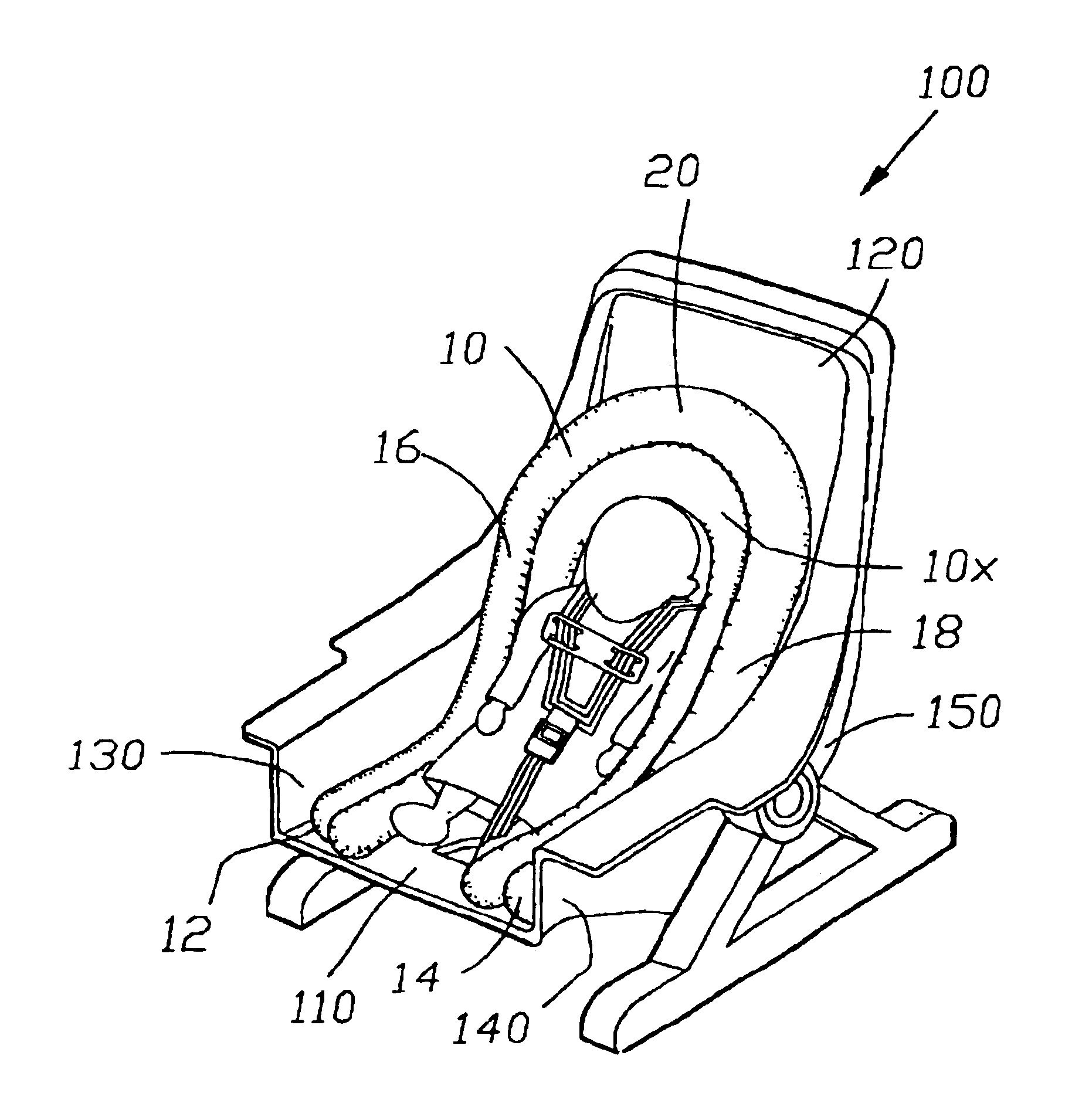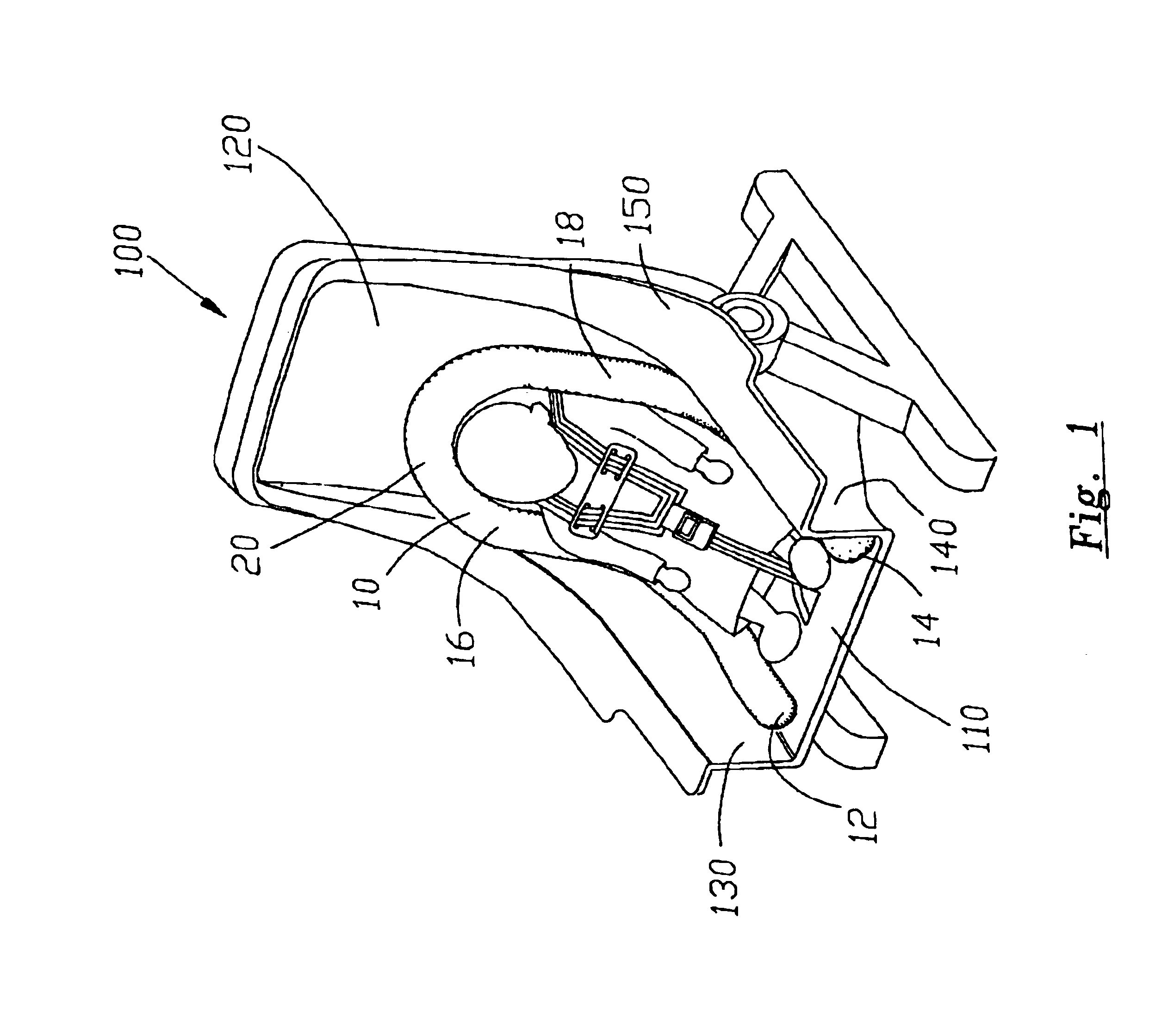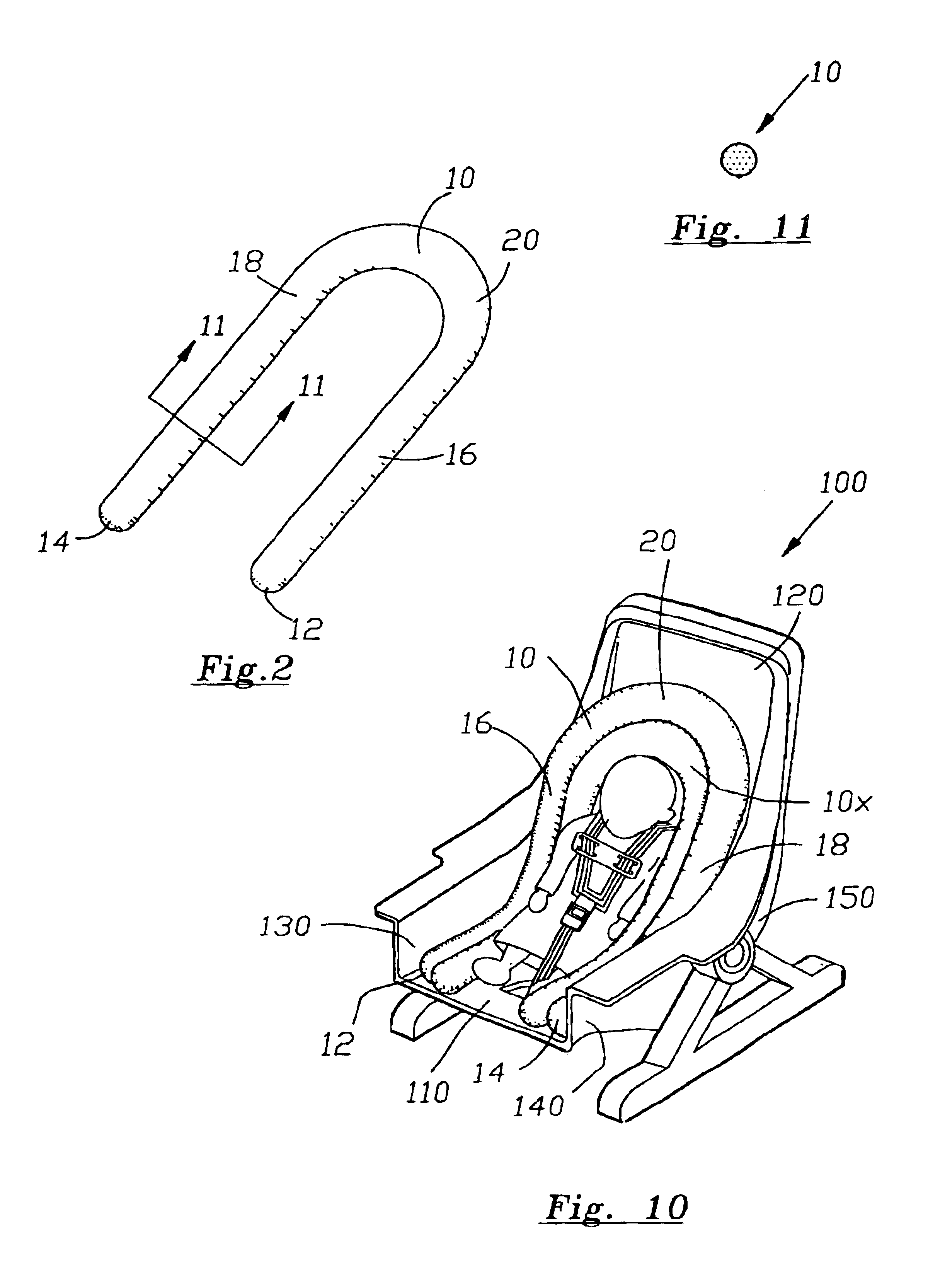Child's car seat cushion
a car seat and child technology, applied in the direction of chairs, pedestrian/occupant safety arrangements, vehicular safety arrangements, etc., can solve the problems of infant carriers, infant support car seats, infant carriers, etc., to prevent infants from slouching or falling over, prevent airway obstruction, and prevent infant slouching.
- Summary
- Abstract
- Description
- Claims
- Application Information
AI Technical Summary
Benefits of technology
Problems solved by technology
Method used
Image
Examples
second embodiment
[0047]FIG. 3 illustrates the invention. The cushion 10a is similar to the cushion 10 shown in FIGS. 1-2, and parts that are the same or similar are given the same reference numerals with the suffix “a” attached. In this embodiment, the cushion 10a is pre-formed into an upside down U-shape and includes an pre-formed elbow shaped bend 24 in each of the legs 16a, 18a at a location which is at approximately half of the length of the legs. The pre-formed angle θ of the bend is approximately 105° before insertion into the car seat 100. 105° is approximately equal to the standard cradle angle formed by the intersection of the seat surface 110 and back surface 120 of the car seat 100. (FIG. 1). In another embodiment of the cushion 10a (not shown), each of the legs of the cushion 10a has a reduced thickness / diameter relative to the thickness / diameter of the remainder of the cushion. The reduced thickness portions of the cushion are located relative to the child along a distance approximately...
third embodiment
[0053]FIG. 4 illustrates the invention. The cushion 10b is similar to the cushion 10FIGS. 1-2, and parts that are the same or similar are given the same reference numerals with the suffix “b” attached.
[0054]In this embodiment, the cushion 10b includes an audible sound producing device, namely a battery operated music box 26, located in the axial end 12b of the leg 16b. The music box 26 plays chime lullabies or similar music. The music box 26 is activated by a care giver manually depressing a button 27 sewn onto the outside of the material of the leg 16b. Optionally, the button 27 can be depressed so easily that the infant's leg can activate the music box if it kicks the button when the infant is placed into the car seat 100.
[0055]The music box 26 can also be self-activating. A self-activating music box 26 has no depressible buttons and activates instead in response to an impact force exceeding a predetermined impact force threshold, such as in response to the infant kicking the leg ...
fourth embodiment
[0059]FIG. 5 illustrates the invention. The cushion 10c is similar to the cushion 10FIGS. 1-2, and parts that are the same or similar are given the same reference numerals with the suffix “c” attached. In this embodiment, instead of the music box 26, the cushion 10c includes a rattle 28. The rattle 28 is located in the axial end 12c of the leg 16c of the cushion 10c. Alternatively, the rattle 28 may be located in the opposite axial end 14c of the leg 18c or a rattle may be located in each axial end of the cushion 10c. The rattle 28 is only schematically illustrated as many different configurations of rattles may be employed.
[0060]The rattle 28 is a waterproof plastic structure containing small beads which make an audible rattling sound when shaken or suddenly jarred such as when the leg of the infant kicks the cushion 10c where the rattle is located. Like the music box 26, the rattle 28 is also insulated by the batting or other cushioning media to prevent injury to the infant upon t...
PUM
 Login to View More
Login to View More Abstract
Description
Claims
Application Information
 Login to View More
Login to View More - R&D
- Intellectual Property
- Life Sciences
- Materials
- Tech Scout
- Unparalleled Data Quality
- Higher Quality Content
- 60% Fewer Hallucinations
Browse by: Latest US Patents, China's latest patents, Technical Efficacy Thesaurus, Application Domain, Technology Topic, Popular Technical Reports.
© 2025 PatSnap. All rights reserved.Legal|Privacy policy|Modern Slavery Act Transparency Statement|Sitemap|About US| Contact US: help@patsnap.com



